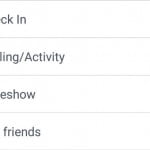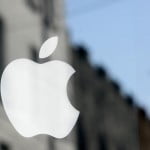
As the year comes to a close, there are very few things worth celebrating as far as global politics go. This was the year where some very strange things became the “norm”, in part thanks to the very short attention span of the public living in an era of hyper-information fuelled by broadband internet and mobile devices, along with very utopian-dystopian events in themselves.
The public discourse is playing out in tweets and Facebook posts that condemn the outrageous acts [in Syria] but are largely designed for moral self-signalling.
Let’s start with the burning point of not just 2016, but predominantly the past half a decade. Syria. The Syrian crisis has made it impossible for global politics to ignore the chemical attacks and mass executions by the ‘opposition’ and the Syrian regime. Meanwhile, the public discourse is playing out in tweets and Facebook posts that condemn the outrageous acts but are largely designed for moral self-signalling. And this is perhaps why we saw terror strikes on Paris and Brussels condemned much more vehemently than those in Baghdad or Kabul.
Every terror attack is and should be condemnable. However, some global events require a prolonged, designed and thought-out evocation of interest in the public sphere, regardless of whether or not it interests people at the individual level. It is the job of the media to do this, and the Syrian crisis has been a test for both the people and the pillars of the “fourth estate” to air the plight of the victims.
A general consensus of public discourse is that the Syrian crisis is a “Syrian” problem, and does not affect faraway lands, for example, India, where the issue has been covered with little of the responsibility that the world’s largest democracy should ideally wield. Official governmental posturing aside, the press has largely been agnostic towards the Syrian crisis despite the larger Middle East region being home to 8 million Indians.
But it is not just Syria where the apathy of how social media has coped with war and terrorism in 2016 has come to light. A lot of why the term “new normal” has found its way to our everyday vocabulary is due to the double standards and moral self-signalling that social media has managed to build. However, make no mistake—many of the atrocities in Syria would have never been known had social media not been there. But social media itself has subdued the reaction to such critical information, with it becoming a mere tool of reciprocated acknowledgment to the large amount of information social media itself is credited to carry out of today’s warzones. This is quite the departure from a few years ago when the medium was used across the Arab world to orchestrate protests against corrupt and despotic governments in the region despite much of the “Arab Spring” culminating into a largely failed mass movement which had more organised bravado on social media than on the ground.
The news cycle has been so fierce that it has barely given time to globally critical events to unfold enough information to gather long-term interest.
But the “new normal” has gone much beyond Syria this past year. The news cycle has been so fierce that it has barely given time to globally critical events to unfold enough information to gather long-term interest. For example, there have been two aircraft crashes this year that have remained unsolved and could have been a result of onboard bombs as part of a terrorist strike. Both of these incidents that took place in Egypt (Metrojet 9268 and EgyptAir 804) remain unsolved with the blame still being vaguely pointed towards terrorists. Yet, little to no interest to firmly decipher what happened in these two incidents exists just months after the crashes taking place and collectively killing 290 passengers and crew.
Even much more geo-politically dire events such as the dramatic assassination of the Russian Ambassador to Turkey, Andrei Karlov, on 19 December by a Turkish law-enforcement officer, evidently over the crisis in Aleppo, have moved swiftly away from the incident with almost no knee-jerk geo-political ramifications from either Moscow or Ankara. Historically, assassinations of envoys have always been “game-changers”, so to speak. However, bizarrely, Karlov being brazenly shot in full view of the global press at a gallery did not invoke the sense of shock and awe in the global news cycle, let alone any drastic posturing by any of the powers embroiled in the extremely complicated politics of the region. In effect, an Ambassador’s death was somehow acceptable, and brushed aside for greater interests at play in the quagmire that is the Middle East. A few years ago such an outcome could have had devastating consequences.
Today, at the end of 2016, none of us can predict what will happen in February 2017 in American politics, and in effect global politics.
In about 25 days, Donald Trump will change over his current status as the President-elect to the President of the United States, as he moves into the White House as the new most powerful man in the world. He has already altered the norms of global politics, not just by getting elected but also by announcing nuclear posturing under his rule on Twitter, refusing intelligence briefings by the CIA and FBI (in effect questioning their relevance and quality of work), getting together the least qualified (education wise) cabinet and bizarrely having a view of the world that’s much aligned to that of Russian President Vladimir Putin.
The year 2017 will herald in an era of political unpredictability. Today, at the end of 2016, none of us can predict what will happen in February 2017 in American politics, and in effect global politics.











